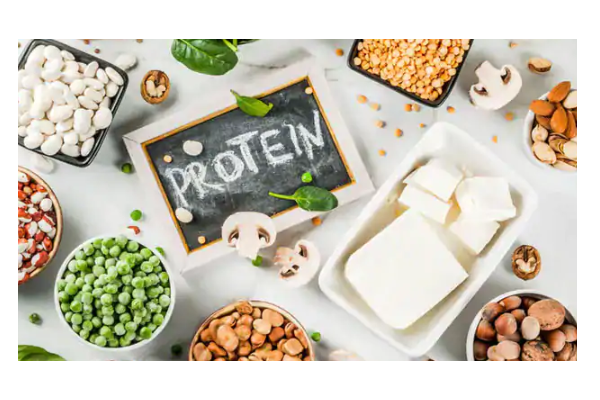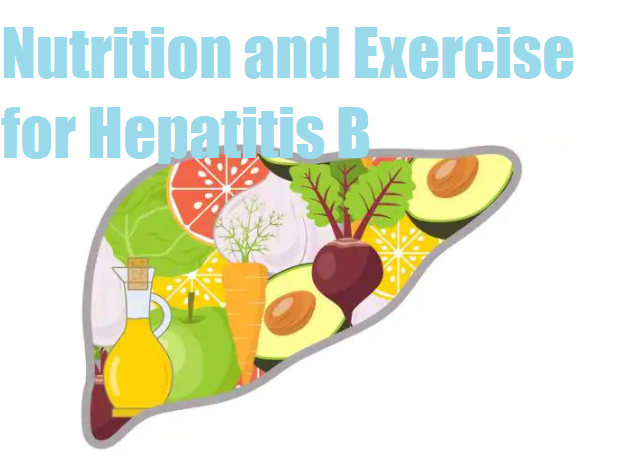Hepatitis B is the disease which affect our liver, it is one of the largest organ and it function some vital roles in our body. So like other organs of our body we need to take care of it especially if you have hepatitis.
It is the fact that hepatitis have no complete recovery, so we need to wait till it recover. Hepatitis patients usually take pills every day as per their doctors instruction, but with these drugs you can take a lot of steps to lessen the damage the virus may do to your liver. It’s all about how you treat your own body; nutrition and physical fitness are important ingredients for a healthy liver.
Here we discuss some nutrition and exercise which is help to increase energy and lesser the infection of virus.
Nutrition
The liver metabolizes everything you eat, so a healthy diet is especially important for those living with a liver disease such as hep B. Furthermore, since many people with the disease suffer from low energy or fatigue, a fuel-rich diet is a key way to give your body as much vigor as possible. You should drink plenty of water and observe a good balance between all of the basic food groups, including whole grains, proteins, dairy, fruits, vegetables and fats—making sure to keep the saturated fats in your diet to a minimum.
Here are some other nutrition tips:
Take Carbs and sweet carefully
Carbohydrates fuel the body. There are two kinds of carbs, named complex and simple carbs. Foods with starch and fiber are complex carbs, and the body metabolizes these more slowly than it does simple carbs. Minimally processed, “non-white” foods such as beans and whole grains like brown rice, oatmeal, barley, quinoa, are higher quality carbs. Starchy, low fiber foods like rice, potatoes, pasta are mostly made up of a simple sugar called glucose. These carbs provide poor quality fuel or “empty calories” to our diets.
While too much glucose will pack on the pounds, fructose is the carbs to skip. Fructose is sugar. Fructose is largely broken down in the liver, and excess fructose can raise triglycerides, create insulin resistance, and may cause fatty liver disease.
Eat more fruits and vegetables
A healthy diet include large quantity of fruits and vegetables. Studies recommend that women older than 30 consume around one and a half cups of fruit and two to two and half cups of veggies per day; the recommendation for men is two cups of fruit and three cups of vegetables. Although fruit has fructose in it, it also has fiber and other nutrients. The liver metabolizes fruit slowly, making it a good choice when you are trying to satisfy a craving for sweets.
Protein

Protein is an essential building block your body needs to repair and replace tissue that has been damaged. Look for a wide array of proteins, including lean meats, poultry, fish, beans, eggs, nuts, seeds, milk, yogurt and cheese.
Avoid Fats and Fried Foods
While having some fats in your diet is healthy, it’s important not to go overboard. In particular, try to avoid saturated and trans fats. Saturated fats are mostly found in animal products, such as beef, lamb, pork, poultry skin, cheese, butter, whole milk, cream and lard. Palm oil is highly saturated.
Noe trans fats are used less in food manufacturing, it is also called trans fatty acids, trans fats are formed when hydrogen is added to a vegetable oil to make a more solid shortening or margarine, a process called hydrogenation. Try to avoid trans fats altogether.
Limit Processed Foods and Sodium
You should try to cut out all processed foods, in particular fast food. In addition to containing fat and caloric levels that can often go through the roof, processed food is typically drenched in salt, also known as sodium. Sodium can be particularly harmful to people with liver disease because when the organ is damaged to the point where it fails to produce enough proteins in the blood, it releases more fluid into the tissues to try to even out the imbalance. Salt can then worsen this effect, because too much sodium causes you to retain fluids in order to lessen its concentration. High sodium intake may cause swollen legs or bellies, high blood pressure, diabetes or chronic kidney disease. If you have cirrhosis, discuss sodium limits with your health care provider.
Eat real foods
Junk foods are low in the nutrients your body actually needs, so consuming them will only narrow the nutritional benefits of your overall caloric intake. Fill your plate with colorful fruits and vegetables, because different natural colors are reflective of a spectrum of important nutrients. Consider the difference between a highly processed, high-fat, sodium-packed fast-food meal of entirely tan food and a nutritious plate of brown rice, bright orange salmon and dark green spinach.
Avoid unsafely foods
Not in nutritional reasons but for safety ones raw or under cooked oysters, clams, and other shellfish may harbor Vibrio vulnificus, bacteria that are particularly harmful to people with liver disease.
Certain wild mushrooms contain toxins that can destroy even the healthiest livers. Do not eat foraged mushrooms unless you are 100 percent sure that they are safe.
Drink Coffee
Consumption of caffeinated coffee on a regular basis has been associated with reduced formation of liver fibrosis, slower disease progression, and decreased risk of cirrhosis and liver cancer. Decaf coffee and green tea have not been shown to benefit or harm the liver.
Advanced liver disease can lead to malnourished, causing significant weight loss. It is important to get enough calories and to make sure they are coming from the best possible sources-in other words, not from fatty foods, sweets or low-fiber carbohydrates. The liver may be having trouble processing proteins, in which case a physician can prescribe nutritional supplements that supply protein in a form that is easier to absorb.
Exercise

Keeping physically fit can benefit your liver in many ways. If you are overweight, lowering your body mass index can reduce the likelihood and the effects of non-alcoholic fatty liver disease. Weight loss can also decrease the body’s demands on the liver and improve the organ’s ability to metabolize glucose. Going down in waist size can lessen the risk of diabetes or help manage the condition for those who already have it.
Regular exercise—at least three times a week for half an hour—has many benefits to your overall health and well-being. It increases muscle mass so you burn more calories throughout the day. It boosts your immune function as well as your mood and energy. A recent study found that middle-age men who exercised at least 240 minutes a week were able to greatly improve damage caused by fatty liver disease.
Even brisk walking can be beneficial. Try walking 10 minutes, three to five days a week, and, gradually over the course of several weeks or a few months, make your way up to an hour a day.
Daily exercise have lots of benefits, it will prove the over all working of our whole body. You can try cardiovascular exercise or weight lifting anything which you like to do and enjoy.
Following above nutritional tips and doing regular exercise give visible result in hepatitis B patients, because it increase your metabolism , energy level etc.





